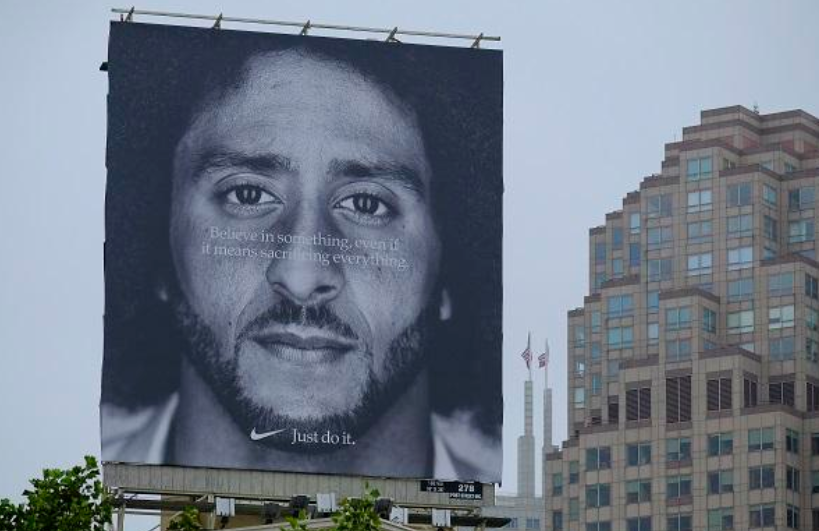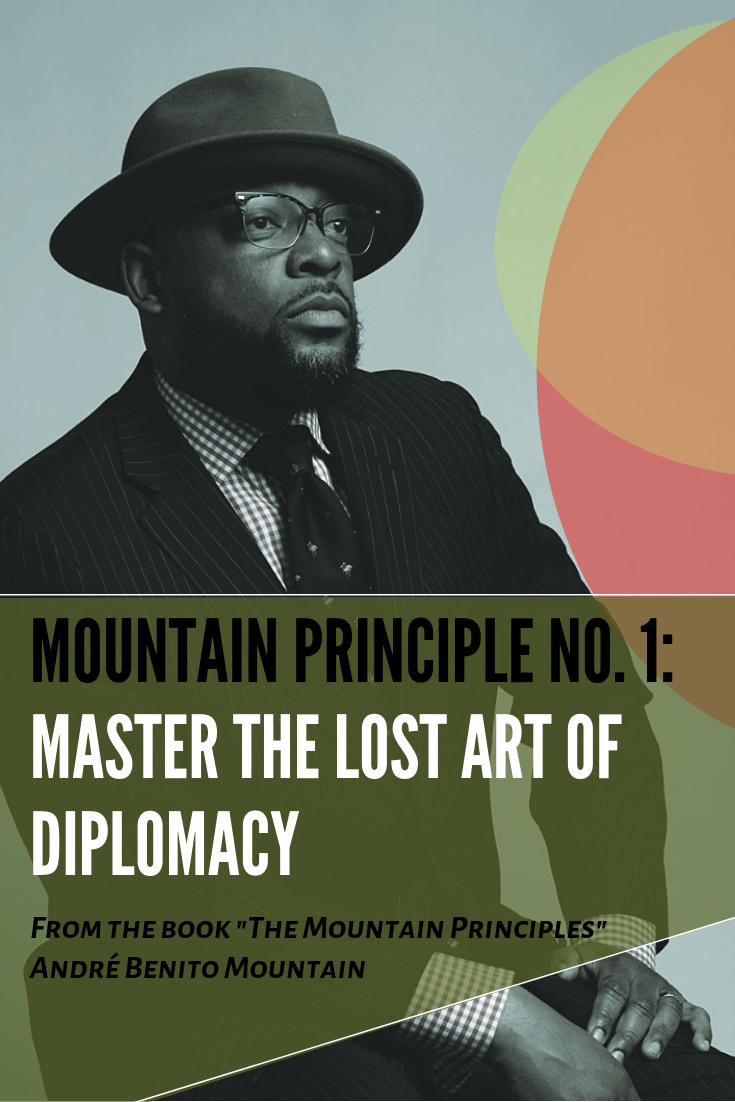One of the best lessons I learned during the first months of my principalship was that diplomacy matters. In a life of service, verbal assaults become par for the course. Think Jackie Robinson. Think MLK. Think Barack Obama. Are you able to rise above the rumors, the attacks and accusations and focus on the work? Is the mission still at the forefront of your work? I often equate the work of an educator to that of a professional athlete. I imagine that when Colin Kaepernick stepped onto a field, he was met with the roar of cheers and jeers, but his actions weren’t swayed by public opinion. Atlanta’s arts community recently rallied around his public stance against police brutality in full force by painting murals around the city in honor of his revolutionary stance.

Being able to block out the noise from the bleachers and focus on running the plays is essential to the success of your team. There’s always background noise, but we have a choice when it comes to where we place our attention. You quickly learn that people’s lives are so complex that much of the aggression you encounter has little to do with the situation in hand. It is often the symptom of deeper, more complex pains, biases and frustrations that have simply been triggered by a phone call from the school. In those moments, educators must have the presence of mind to remain calm, be level headed, and take the high road. This is not at all an easy task.
Bronx 1971
Diplomacy can even be linked to the start of Hip-Hop culture. Rolling Stone published an interview in 2015 where they referenced Benjy Melendez’s book “Ghetto Brother”. The book describes how a meeting at the Bronx Boys Club in 1971 triggered the diplomacy between gangs. The outcomes included b-boy battles and rap battles in the Bronx between rivals as an alternative to street violence. The first chapter of my book, The Mountain Principles, is titled “Master the Lost Art of Diplomacy”. There’s a reason why I placed this at the beginning of my book. Diplomacy is so critical to our success as school leaders. Diplomacy has truly become a lost art in our culture. In a political climate where diplomacy seems to be waning, we have to instill in our young people the value of peacefully resolving conflict.
Team Accountability
Inevitably, decisions must be made that don’t sit well with members of your team. Growing a team means to move people out of their comfort zones and challenge them to reach for new levels of performance. This week I faced a challenge at school where I discovered an issue and after peeling a few layers away and posing some questions, more things were revealed. There were many ways it could have been handled, but I decided to take the diplomatic route and provide a general directive that raised awareness of the issue. When we are reminded of our collective commitments to our work, we tend to see how important our individual roles are.
Don’t Call Me Sir
Diplomacy requires that we lead from a place of compassion and intellect rather than a place of emotion. Diplomacy doesn’t hinge on one’s mood, but rather one’s disposition. Teaching diplomacy to others means that we model it even when we are the only one speaking in a diplomatic manner. As parents, we have to change the narrative of telling children to meet violence with violence. Too many well-meaning parents are conveying a message to children that violence begets violence. I always use the example of the civil rights movement as an example of how a different response can bring about change. Several weeks ago I met with an angry parent who, in the midst of our conversation, shouted to me “Don’t call me sir!”. In retrospect, his outburst was humorous, but it typifies how emotions can overpower our ability to reason. My efforts to be respectful and calm were met with a plea to engage in a violent shouting match. Diplomacy allows us to maximize the productivity of meetings by keeping the focus on an equitable resolution rather than attributions of blame.

Marcus Garvey
Marcus Garvey is a powerful example of diplomacy in an international, Pan-African sense. In his book, Negro With a Hat, Colin Grant describes Marcus Garvey as “the embodiment of an idea that the African was just as capable of erudition, scholarship, refinement and leadership as anybody else.” Those four words resonate with me as the cornerstones of leadership: erudition, scholarship, refinement and leadership.

Leave a comment